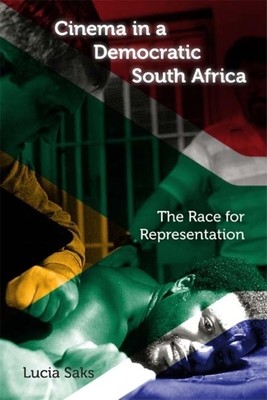
- We will send in 10–14 business days.
- Author: Lucia Saks
- Publisher: Indiana University Press
- ISBN-10: 0253221862
- ISBN-13: 9780253221865
- Format: 15.5 x 23.1 x 2 cm, minkšti viršeliai
- Language: English
- SAVE -10% with code: EXTRA
Reviews
Description
Lucia Saks uses South African cinema as a lens through which to view cultural changes resulting from the end of apartheid in 1994. She examines how media transformed the meaning of race and nation during this period and argues that, as apartheid was disbanded and new racial constructs allowed, South Africa quickly sought a new mode of representation as a way to distance itself from the violence and racism of the half-century prior, as well as to demonstrate stability amid social disruption. This rapid search for a new way to identify and portray itself is what Saks refers to as the race for representation. She contextualizes this race in terms of South African history, the media, apartheid, sexuality, the economy, community, early South African cinema, and finally speculates about the future of "counter-cinema" in present-day South Africa.
EXTRA 10 % discount with code: EXTRA
The promotion ends in 23d.18:51:04
The discount code is valid when purchasing from 10 €. Discounts do not stack.
- Author: Lucia Saks
- Publisher: Indiana University Press
- ISBN-10: 0253221862
- ISBN-13: 9780253221865
- Format: 15.5 x 23.1 x 2 cm, minkšti viršeliai
- Language: English English
Lucia Saks uses South African cinema as a lens through which to view cultural changes resulting from the end of apartheid in 1994. She examines how media transformed the meaning of race and nation during this period and argues that, as apartheid was disbanded and new racial constructs allowed, South Africa quickly sought a new mode of representation as a way to distance itself from the violence and racism of the half-century prior, as well as to demonstrate stability amid social disruption. This rapid search for a new way to identify and portray itself is what Saks refers to as the race for representation. She contextualizes this race in terms of South African history, the media, apartheid, sexuality, the economy, community, early South African cinema, and finally speculates about the future of "counter-cinema" in present-day South Africa.


Reviews